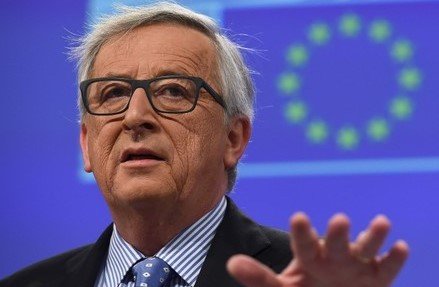EU leaders are set to endorse a sovereign digital transition at a Brussels summit on October 24, 2025, but the move hides deep divisions between France and Germany on reducing dependence on American tech giants. This comes days after a major Amazon cloud outage on October 21 disrupted services across Europe, highlighting the risks of overreliance on US providers like Amazon, Microsoft, and Google.
The outage affected millions, from online banking to streaming services, and sparked fresh calls for Europe to build its own tech infrastructure. Leaders aim to reinforce digital sovereignty while keeping ties with trusted partners, according to draft statements. Yet, France pushes for bold independence, while Germany favors cautious cooperation.
Amazon Outage Sparks Urgent Debate
The Amazon Web Services disruption started in Northern Virginia servers and rippled through Europe, halting daily routines for hours. Users reported issues with apps, websites, and even government portals, underscoring Europe’s vulnerability.

Experts point out that over 70 percent of Europe’s cloud market is controlled by US firms. This event follows similar incidents, like past Microsoft outages, and fuels demands for local alternatives.
In response, EU officials are accelerating plans for secure, homegrown cloud systems. The timing aligns with growing geopolitical tensions, including trade threats from the US under President Trump’s second term.
France and Germany at Odds
France views digital sovereignty as a path to full independence, backing national champions and strict regulations to curb US dominance. Officials in Paris argue that reliance on American tech leaves Europe open to interference, especially in critical sectors like defense and healthcare.
Germany, on the other hand, stresses open markets and alliances. Berlin worries that aggressive moves could harm trade relations with the US, a key partner for German exports.
This split shows in public surveys. A recent poll revealed:
- 62 percent of French respondents favor competing alone as a tech leader.
- 58 percent of Germans prefer regional alliances for joint competition.
These differences complicate joint efforts, as seen in disorganized preparations for the upcoming Franco-German summit.
Key Players and Their Stances
New French Digital Minister Anne Le Henanff has vowed to prioritize interference-proof solutions in cloud computing. She made this clear in her first public remarks after taking office in October 2025.
German Digital Minister Karsten Wildberger calls for open debates on sovereignty, aiming for announcements at the November 18 Berlin summit. He emphasizes collaboration without protectionism.
Industry voices echo the divide. Leaders from European tech firms like SAP highlight France’s state-driven model versus Germany’s market focus.
Broader EU Strategy Takes Shape
The EU has rolled out initiatives like the Digital Markets Act to regulate Big Tech, but progress on sovereignty remains slow. Recent strategies target reducing reliance on US and Chinese tech, with investments in AI and open-source software.
Here’s a quick look at Europe’s tech dependencies:
| Sector | Dominant US Players | EU Share Reliant on US |
|---|---|---|
| Cloud Computing | Amazon, Microsoft, Google | 75% |
| Social Media | Meta, X | 80% |
| E-commerce | Amazon | 60% |
| Search Engines | 90% |
These figures, based on 2025 market reports, show the scale of the challenge. The bloc plans to boost funding for local startups, aiming for 20 percent growth in European cloud providers by 2030.
Tensions rise amid US tariffs and security pullbacks, pushing Europe to act. Leaders warn that technology can be weaponized in global rivalries.
Path Forward Amid Challenges
Balancing sovereignty with partnerships is key, say analysts. Europe must innovate while avoiding isolation, drawing lessons from China’s self-reliant tech ecosystem.
Recent events, like power blackouts in parts of Europe earlier this year, add urgency. They exposed infrastructure weaknesses tied to foreign tech.
The November summit could bridge gaps, with potential deals on joint cloud projects. Success depends on France and Germany aligning their visions.
As Europe navigates this digital shift, readers like you play a role. Share this article with your network and drop a comment below on what you think the EU should do next to secure its tech future.








